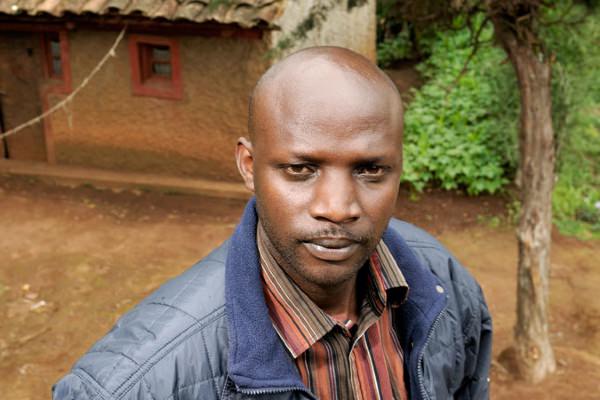Country/region: Rwanda
Conflict: Civil war, genocide
Organisation: Association Modeste et Innocent (AMI)
Field of work: Reconciliation between Hutus and Tutsis
Dieudonné is the son of a Tutsi mother and a Hutu father. Both sides have reservations about him, but he also has a reputation as a neutral mediator. And he uses his sway to help facilitate reconciliation between the Hutus and Tutsis after the genocide in Rwanda that cost the lives of an estimated 800,000 people.
His method involves “Groupes de rapprochement” – reconciliation groups, in which perpetrators and victims encounter one another. Rapprochement takes place in three steps. First the participants discuss their experiences and feelings with others like themselves. Perpetrators with perpetrators. Victims with victims. In the next step, the groups exchange transcripts of each other’s conversations – the aim is for the distance of the written word to give each group time to understand the other’s views and experiences. The third step is a direct discussion between the groups.
AMI tries to establish a delicate balance between the two seemingly contradictory goals of justice and peace. If all the crimes committed during the genocide were prosecuted in court, the country would remain in turmoil for a very long time. If they were all forgotten to “keep the peace”, it would leave the victims with many untended open wounds.
Dieudonné’s own biography bears testament to this: his mother’s entire family was killed by Hutu extremists. When the Tutsi rebel army led by the current president Paul Kagame finally seized power in summer 1994, a great many of his father’s relatives also lost their lives.
He finds strength in a spirituality that is not necessarily tied to a specific denomination. AMI has integrated its reconciliation work into a framework of Christian metaphysics, tai chi meditation and socio-educational concepts, arranged around a core concept borrowed from the national language Ubuntu which means: humanity.
Since 2000, AMI has been organising the reconstruction of destroyed houses, giving courses in the prevention of violence to police officers, training volunteers to counsel traumatised people and supporting mixed student theatre groups where Hutu and Tutsi children can perform together.
